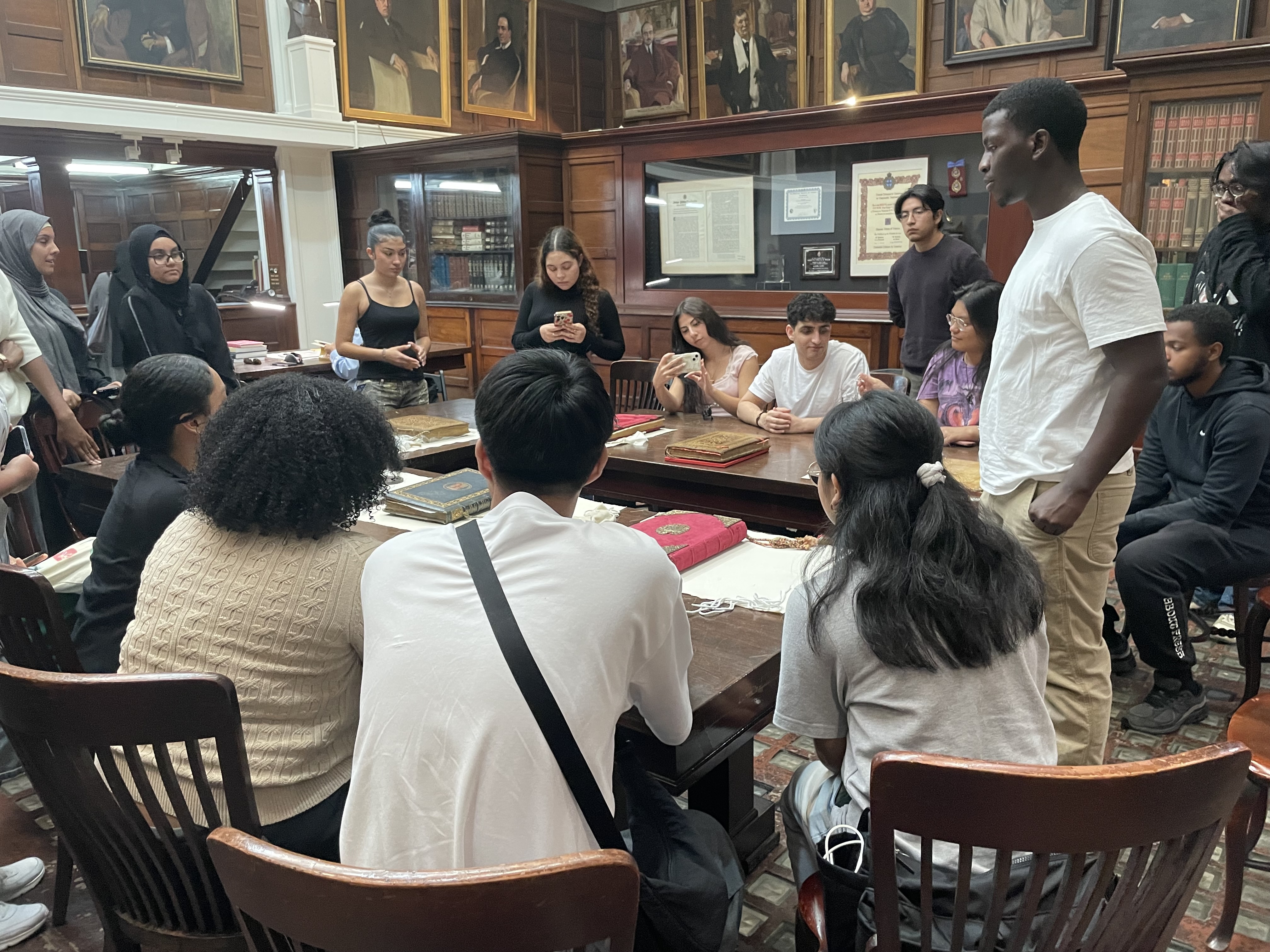- Lehman College >
- News >
- 2025 >
- A Philosophy of the Forest
News
Search All News
Monday, February 23, 2026
CONTACT
Office Hours
Monday - Friday 9am - 5pmClosed Sat. and Sun.
RELATED STORIES
February 23, 2026
Lehman Students Lend Their Voices to 'Spanish Style' Audio Guide
February 20, 2026
A Philosophy of the Forest

March 31, 2025
When you think about philosophical theory, you don’t necessarily think about saving the environment, but Lehman Professor of Philosophy Julie Maybee is making that connection and using old-school philosophy for new practical science.
“Dialectical ecosystems: Theory and applications,” an article she co-authored in the latest volume of Advances in Ecological Research, proposes an unusual context for Hegel’s dialectics: ecosystem science. It outlines how Hegel's philosophical model of development and change can help ecologists understand and predict ecological development (or change) better— especially “leaps” to new ecological stages that are different from what came before,
Maybee literally wrote the book on Hegelian dialectics and authored its entry in the Stanford Encyclopedia of Philosophy. David Angeler, a research professor at the Spanish National Research Council (CSIC) and leader of the study, theorized that dialectical thinking could support a novel and productive understanding of ecology, and when he came across her Encyclopedia entry, reached out to her for input.
"I was fascinated by the idea of using Hegel’s dialectics to explain ecological phenomena, and so I agreed to meet, and then we started to work together on the article," she said. In the process, she learned a lot about ecological theory and even gained a new perspective on her area of expertise, she said.
The article was not "an academic philosophical exercise,” they wrote, “but an interdisciplinary attempt to bridge philosophical frameworks and ecosystem science under a shared perspective."
Using Hegel’s dialectics, their work proposes a new paradigm for ecological research and stewardship that allows for the inevitable impact of climate change and other human-driven factors but also prioritizes the survival of natural environments as they transform.
A forest, for example, exists as a complex web of ecological relationships. Although a fire will damage or destroy parts of that web, connections between burned and intact parts of the forest, and its regrowth from seeds already in the ground, will form a new—but changed—ecosystem.
This system, said Maybee, “has entirely new characteristics that were not in the original, but also retains aspects of it.” In other words, ecosystems don't necessarily disappear but transform.
Putting this example into practice, the burned forest will regenerate, but perhaps with trees that grow differently with more space and light available. Seeds dropped by animals that once passed through might sprout and provide different food sources and attract different animals. Dialectical forest management would adapt its methods to these new conditions—and more readily accommodate subsequent changes—rather than attempt to restore the previous ecosystem, which can be a lost cause.
Human beings are also part of ecosystems, and a dialectical approach stands to benefit us too.
“A lot of ecological work has largely aimed at maintaining the status quo—but with climate change, that is likely impossible," Maybee said. "If ecological change is coming, then understanding it as dialectical will help us to predict those surprising shifts and maybe even nudge those developments in directions that are better for human beings.”









